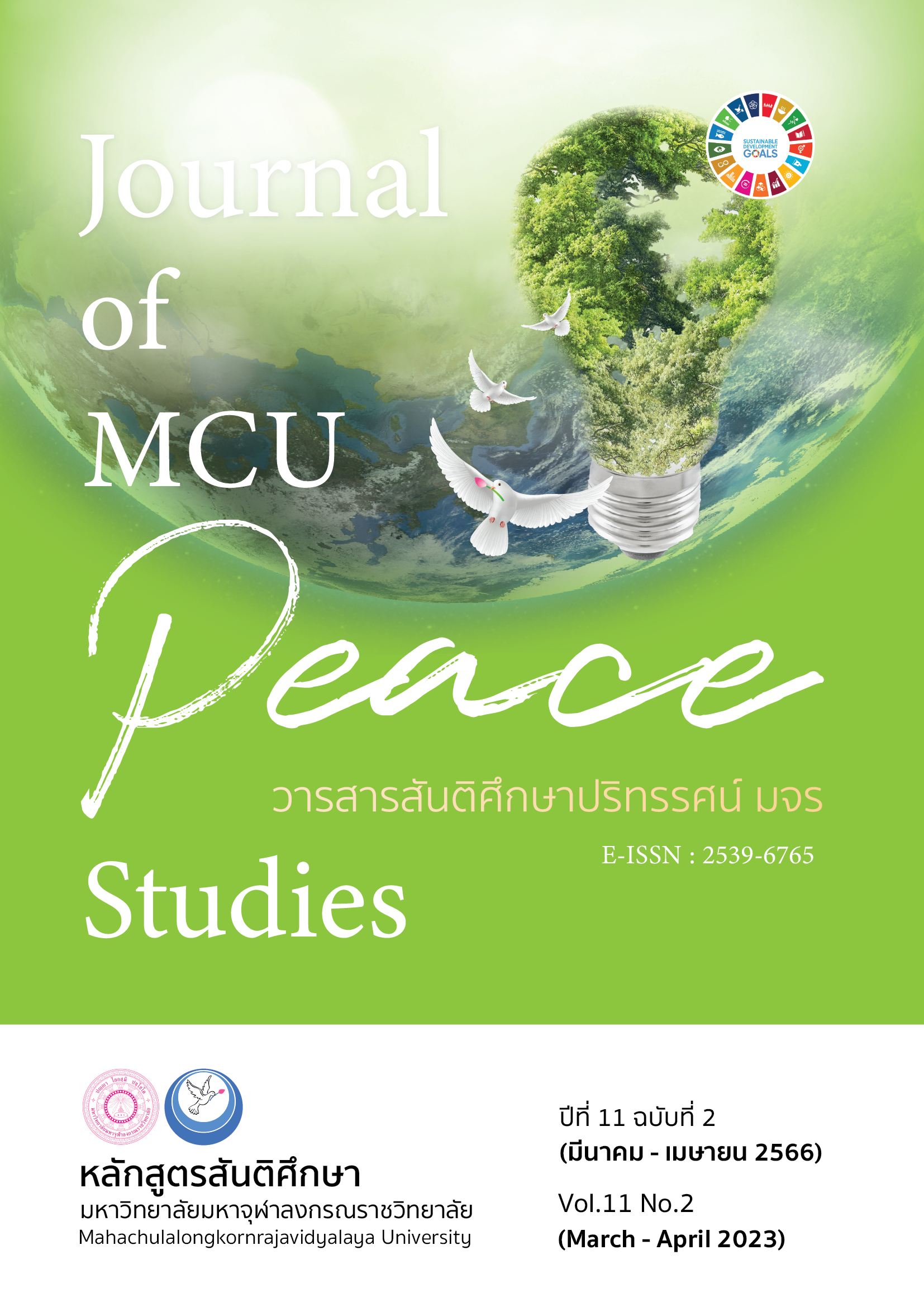การปรับตัวในการดำรงชีพตามแนวทางวิสาหกิจเพื่อสังคม ของกลุ่มอาชีพฐานการเกษตรในจังหวัดเชียงราย
Main Article Content
บทคัดย่อ
บทความวิจัยนี้มีวัตถุประสงค์คือ 1) เพื่อศึกษายุทธวิธีและการปรับตัวในการดำรงชีพของกลุ่มอาชีพฐานการเกษตรในจังหวัดเชียงรายตามแนวทางวิสาหกิจเพื่อสังคม 2) เพื่อศึกษากระบวนการขับเคลื่อนการพัฒนากลุ่มอาชีพฐานเกษตรไปสู่การเป็นวิสาหกิจเพื่อสังคม 3) เพื่อวิเคราะห์ผลของการขับเคลื่อนการพัฒนากลุ่มอาชีพฐานเกษตรไปสู่การเป็นวิสาหกิจเพื่อสังคม การดำเนินการวิจัยเป็นไปตามระเบียบวิธีวิจัยเชิงคุณภาพ กลุ่มตัวอย่างที่ใช้คือกลุ่มอาชีพฐานเกษตร 3 กลุ่ม ในชุมชนชนบทของจังหวัดเชียงราย การรวบรวมข้อมูลใช้วิธีการสัมภาษณ์เชิงลึกกับผู้ให้ข้อมูลสำคัญจำนวนทั้งหมด 36 คน ควบคู่กับการสังเกตแบบไม่มีส่วนร่วม วิเคราะห์ข้อมูลด้วยวิธีการวิเคราะห์เนื้อหา การจัดหมวดหมู่ การวิเคราะห์เหตุผลเชิงตรรกะ และการสร้างข้อสรุปเชิงอุปนัย
ผลการศึกษาพบว่า 1) สมาชิกของทั้ง 3 ชุมชนซึ่งส่วนใหญ่ประกอบอาชีพเกษตรกรรมเป็นหลักประสบกับความเปราะบางจากการขาดแคลนน้ำสำหรับการเกษตร ปัญหาราคาผลิตผลเกษตรตกต่ำ จึงได้พยายามปรับยุทธวิธีการดำรงชีพด้วยการรวมตัวกันจัดตั้งกลุ่มอาชีพฐานการเกษตร 2) การขับเคลื่อนการพัฒนาของกลุ่มอาชีพฐานเกษตรปรากฏในรูปแบบของการนำเอาทรัพย์สินต่างๆ ที่เกี่ยวข้องกับการดำรงชีพมาผลิตและปรับปรุงคุณภาพสินค้าผ่านการจัดการเชิงธุรกิจที่มุ่งแก้ปัญหาการดำรงชีพและลดความเปราะบาง 3) ผลของการขับเคลื่อนการพัฒนานี้ช่วยในการยกระดับการดำรงชีพของสมาชิกชุมชน โดยทำให้พวกเขามีรายได้และความเป็นอยู่ที่ดีขึ้น อีกทั้งยังลดความเปราะบางอย่างสอดคล้องกับบริบทบทของชุมชนท้องถิ่น
Article Details

อนุญาตภายใต้เงื่อนไข Creative Commons Attribution-NonCommercial-NoDerivatives 4.0 International License.
ทัศนะและความคิดเห็นที่ปรากฏในบทความในวารสาร ถือเป็นความรับผิดชอบของผู้เขียนบทความนั้น และไม่ถือเป็นทัศนะและความรับผิดชอบของกองบรรณาธิการ ยินยอมว่าบทความเป็นลิขสิทธิ์ของวารสาร
เอกสารอ้างอิง
Bidet, E., & Defourny, J. (2019). Social Enterprise in Asia: Theory, Models and Practice. New York: Routledge.
British Council. (2020). The State of Social Enterprise in Thailand. Retrieved October 8, 2021, from https://www.britishcouncil.org/sites/default/files/state_of_social_enterprise_in_thailand_2020_final_web.pdf
Chambers, R., & Conway, G. (1992). Sustainable Rural Livelihoods: Practical Concepts for the 21st Century. Brighton: Institute of Development Studies.
Dees, J. G. (1998). The Meaning of Social Entrepreneurship. Retrieved September 15, 2018, from http://www.the-ef.org/resources-Dees103198.html
Defourny, J., & Kim, S. Y. (2011). Emerging Models of Social Enterprise in Eastern Asia: A Cross-Country Analysis. Social Enterprise Journal, 7(1), 86-111.
DFID. (1999). Sustainable Livelihoods Guidance Sheets, Department for International Development (DFID). Retrieved September 15, 2018, from www.livelihoodscentre.org
Doherty, B., Haugh, H., & Lyon, F. (2014). Social Enterprises as Hybrid Organizations: A Review and Research Agenda. International Journal of Management Reviews, 16(4), 417-436.
Ellis, F. (2000). The Determinants of Rural Livelihood Diversification in Developing Countries. Journal of Agricultural Economics, 51(2), 289 - 302.
Fang, Y., Zhao, C., Rasul. G., & Wahid, S. M. (2016). Rural Household Vulnerability and Strategies for Improvement: An Empirical Analysis Based on Time Series. Habitat International, 53, 254 – 264.
Kenaphoom, S. (2015). The Approach for Developing the Effectiveness of the Small and Micro of Community Enterprise (SMCE) in Maha Sara Kham Province. Praewa Kalasin Academic Journal, 4(3), 68 – 85.
King, B. et al. (2019). Navigating Shades of Social Capital and Trust to Leverage Opportunities for Rural Innovation. Journal of Rural Studies, 68, 123 - 134.
Luengaramsri, P. (2011). Livelihoods. (1st ed.). Chiangmai: Phongsawat Printing House.
Lyne, I. (2017). Social Enterprise and Community Development: Theory into practice in Two Cambodian Villages. (Doctoral Dissertation). Western Sydney University. Australia.
Mali, K. (2014). Social Enterprise in Thailand. Journal of Economics and Management Strategy, 1, 104-112.
Masae, A. (2010). The Role of Collective Action in the Construction of Social Quality in Rural Thai Communities: An Analysis of Two Communities in the Southern Region. Romphruek Journal, 29(1), 9 - 38.
Masae, A. (2015). Enhancing Sustainable Rural Livelihood Through Community-Based Development. Journal of Social Development, 17(1), 89-110.
National Organic Agriculture Development Committee. (2017). National Organic Agriculture Development Strategy. Bangkok: Office of Agricultural Economics.
Pearce, J. (2009). Social Economy: Engaging as A Third System. in Amin A (Ed.) The Social Economy: International Perspectives on Economic Solidarity. London: Zed Books.
Poolsawat, P., & Srimai, S. (2018). Social Enterprise and Sustainable Social Development: Lessons Learned from Foreign Countries and Development in Thailand. Journal of Economics and Communications, 13(3), 15 – 32.
Pungkid, N. et al. (2016) Occupational Group Development into Community Enterprise in Phutoei Municipality of Phetchabun Province. Phranakhon Rajabhat Research Journal (Humanities and Social Sciences), 11(2), 201–214.
Rado, I. et al. (2021). Societal Entrepreneurship for Sustainable Asian Rural Societies: A Multi-Sectoral Social Capital Approach in Thailand, Taiwan, and Japan. Sustainability, 13(5), 2747.
Rattanasuteerakul, K. (2014). Dynamic Change and Mode of Production of Peasant Society in the Chee Basin Case Study: Ban Nongphue, Tambon Nong Bua, Amphoe Kosumphisai, Maha Sarakham Province. Kasetsart Journal - Natural Science, 35(3), 447-459.
Richter, R. (2019). Rural Social Enterprises as Embedded Intermediaries: The Innovative Power of Connecting Rural Communities with Supra-Regional Networks. Journal of Rural Studies journal, 70(8), 179-187.
Siriphattarasopon, S. (2015). A Conceptual Study of Social Enterprise Development in Thailand. Journal of the Association of Researchers, 20(2), 30-47.
Thanitthanakorn, N. (2010). Social Entrepreneurship: A Social Innovation for New Generation Entrepreneurs. Executive Journal, 30(4), 16 – 20.


